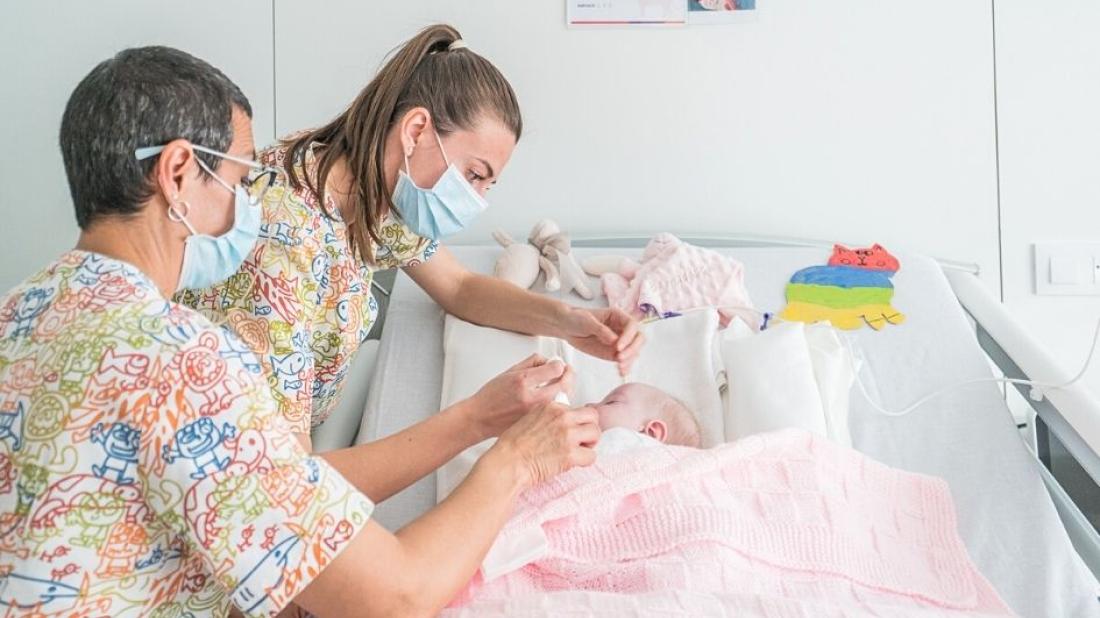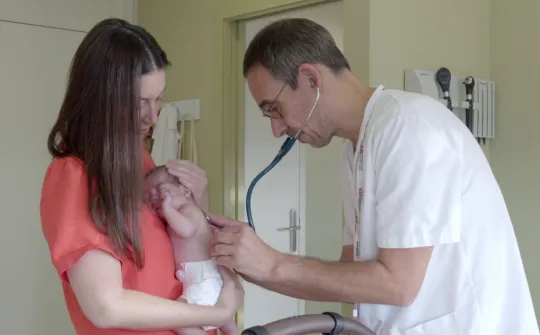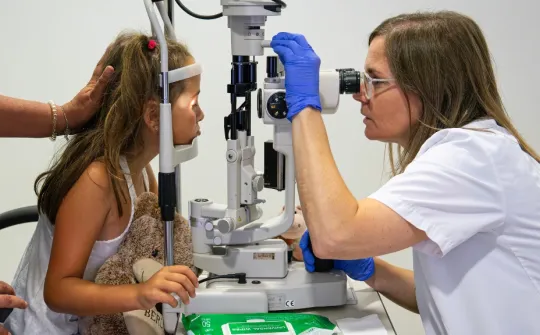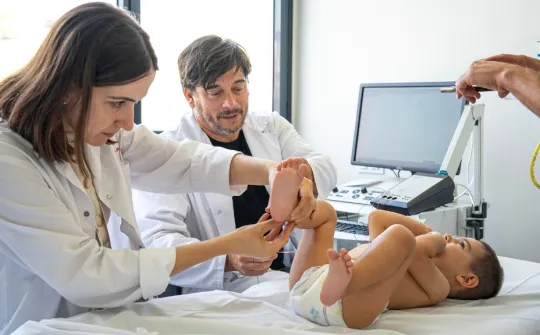
SJD Barcelona Children's Hospital is starting up La Casa de Sofia, a centre to avoid the unnecessary hospitalisation of children
SJD Barcelona Children's Hospital has opened La Casa de Sofia, the first care centre for children with complex chronic diseases and/or advanced disease in Spain. This facility is sponsored by CatSalut and the Social and Healthcare Master Plan, and was developed by SJD Barcelona Children's Hospital in collaboration with Hospital Vall d'Hebron and the Consorci Corporació Sanitària Parc Taulí.
The main objective of this intermediate care centre is to avoid unnecessary admission to acute-care hospitals, delaying possible long-term hospitalisation as far as possible by means of a clinical and organisational approach that makes it possible to achieve clinical stability or the necessary functional improvement. It has also been designed for post-hospitalisation purposes, using planning and support at discharge to avoid further risk of hospitalisation so that patients can go back home with optimal functionality and support. This system will also be an option for families who prefer their child to pass away at the facility, or who cannot handle the death of their child in their own home.
The origin of La Casa de Sofia and its purpose
The new centre has been named La Casa de Sofia (Sofia's House) because one of its sponsors is Jordi Cruz, the father of Sofia, a child who was unable to overcome a rare disease. It is precisely patients with these conditions who are the main users of this facility, since many of them present with progressive disease evolution and multiple-organ involvement that pushes them towards a complex and chronic or advanced situation.
Jordi Cruz believes that La Casa de Sofia will achieve a qualitative leap in the care provided to the families of young children with rare diseases: “Now they will have a place where their children can receive the care that they need in a home-like environment and where the parents can also begin to prepare for when the time comes to go home”.
A pioneering device in Spain and Catalonia
During the official opening, the Catalan Minister for Health, Josep Maria Argimon, emphasised that "It is one of the first facilities of its kind in Europe". As he pointed out, "the centre seeks to become a benchmark in Catalonia for attending to children with special care needs and with a need for palliative care". Moreover, he added, “it is a country-wide project. It will provide care to any boy or girl from anywhere in Catalonia who needs it”.
Argimon explained that the new facility “ties in with some of the objectives which we as a Department have set ourselves in our healthcare plan and are aligned with the replanning of services and the deployment of care models to deliver a decisive response to the most prevalent conditions or those with the greatest impact on the quality of life of patients and their families”. He went on to emphasise that "it is a project that is part of the answer that we as a healthcare system must provide to paediatric diseases, particularly in the paediatric age group".
According to Sergi Navarro, head of the Department of Palliative Care and Complex Chronic Patients at SJD Barcelona Children's Hospital, “La Casa de Sofia aims to become a specialised resource that offers more suitable care than the conventional hospitalisation of children and families with severe chronic diseases”.
Rocío Escobar, the centre's nursing coordinator, adds: “besides assisting the family in the practical part of learning how to take care of their children, we provide them with support in accepting and coming to terms with diagnoses and the changes that occur in their evolution”.
Improving paediatric chronic patient care
Previously, the healthcare sector had no intermediate care centre for looking after chronic paediatric patients. It is estimated that there could be around 3,000 boys and girls with advanced disease in Catalonia , as well as a similar number with a complex chronic condition who could benefit from this type of centre at some point in their clinical evolution. In fact, the Catalan Healthcare System's most recent Strategic Plan had already established the need to do more in the area of chronic diseases in paediatrics, and the implementation of La Casa de Sofia is a significant landmark in progressing towards this goal.
The centre will look after children from all over Catalonia. Most of the patients will come from the three major hospitals that work in chronic paediatric diseases and palliative care: Vall d'Hebron, Parc Taulí and Sant Joan de Déu.
The healthcare programmes envisaged include physical and multi-sensory therapy, as well as creative activities and bereavement support workshops to train caregivers and relatives.
Currently in its first stage, the facility covers a surface area of 1,274 m2, which includes a 260-m2 garden. It has 15 rooms, a room for families, a kitchen and a games room, as well as the areas for professionals.
La Casa de Sofia is part of a broader-ranging project called Red Únicas, sponsored by SJD Barcelona Children's Hospital and involving the participation of 25 large hospitals from all of Spain's various regions. The objective is to guarantee comprehensive care to paediatric patients with rare diseases. Its future development depends on European funds being secured.



